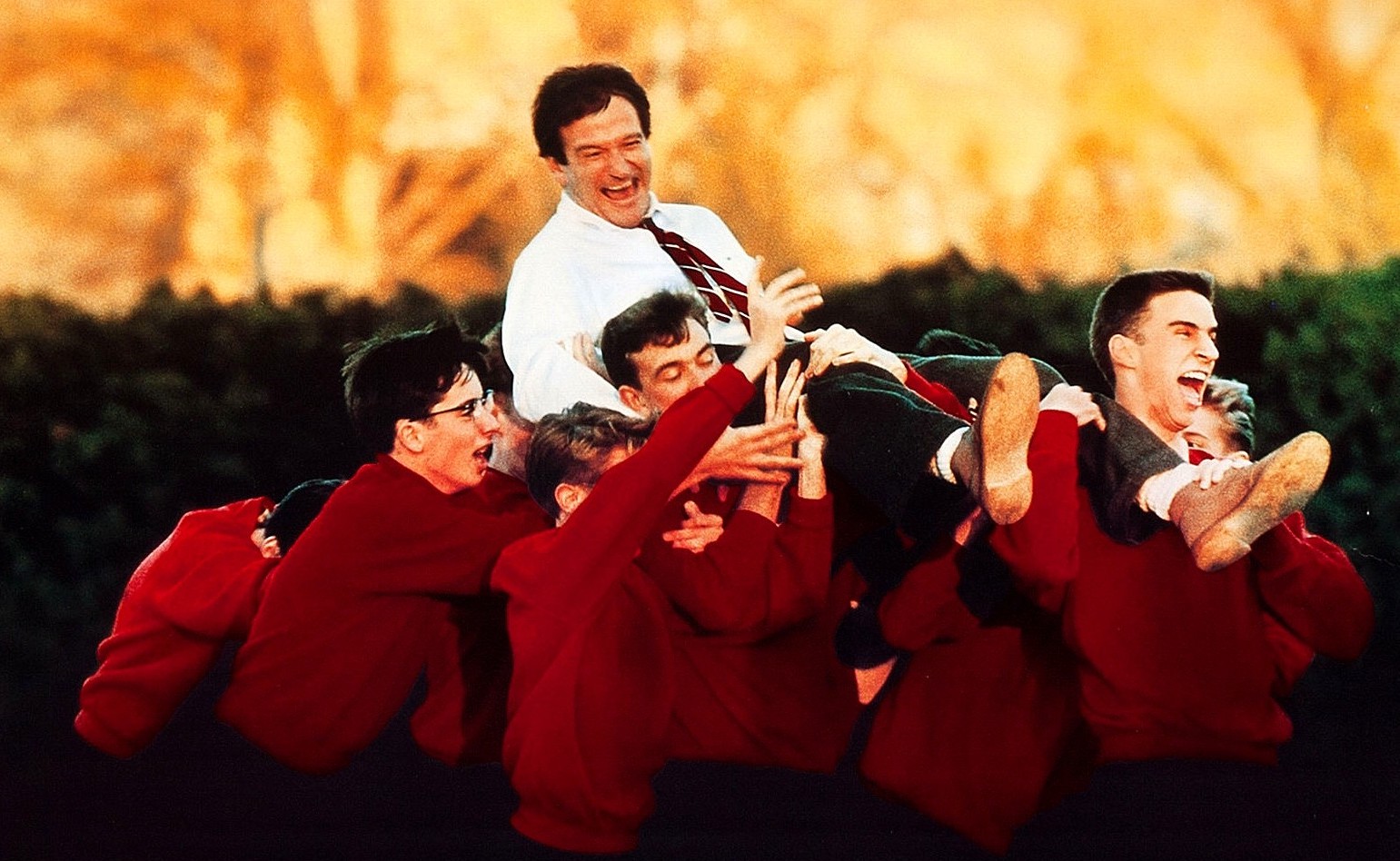“You must strive to find your own voice because the longer you wait, the less likely you are going to find it at all.”
Youth is a wonderful thing. The energy, the passion, the exhilaration behind every action is infectious. There are billions of dollars invested each year to maintain youth or directed towards it across different businesses. And for good reason.
Every day when we’re young feels like it’s full of potential. It feels like there are plenty of opportunities to accomplish or experience something new.
It’s no surprise education is such a challenging issue. How to address these immense reservoirs of energy, and direct them properly, remains a controversial topic that evolves as a science each decade with more and more research.
When students rebel, it’s normally a sign that their energy is not being channeled in a way they find interesting. Whether that is seen a legitimate or not, it’s still an interesting dilemma.
Dead Poets Society showcases a conservative boys’ school with strict teachers and a stricter headmaster, with the exception of English teacher John Keating.
A man whose passion is to inspire young minds and lead them to learn what they really want, his methods clashed with what was deemed proper education at the establishment he worked for. They believed that young boys need to be simply told what to know and what to think and that they should be grateful since it’s easier than to think for themselves.
A good way to see the effectiveness of Keating’s methods was to examine the lives of the boys. As the headmaster put it when objecting to Keating’s methods, “You know how boys that age can be impressionable”. Most of the students in his class were impacted one way or another by his words.
He pushed them beyond the boundaries of what they were conformed to. For some it was liberating to work outside of a framework, for others it was terrifying being outside of a comfort zone. To each it was difficult to learn about their new environment. For the ones liberated, they had to learn how to navigate this new-found liberty and learn how to do overdo it. For those terrified about being outside the comfort zone, they had to learn to push their limits and resist the notion of staying inside a safe area.
John Keating made an effort to push each student beyond a barrier they had in front of them. He put in the work to understand each of his students and then try to offer individual and personal advice and challenges to help them.
“Seize the day. Because, believe it or not, each and every one of us in this room is one day going to stop breathing, turn cold and die.”
What John Keating did was not only showcase what true education looks like, but also what we should strive to do all our lives. To not conform to the dreams and ideals enforced upon us, but to take on the world through our own eyes and find our own understanding of it.
Just as the kids in that class did, with the help of their teacher, you should find the thing that presents the biggest challenge to you, and do it.
Life will pass by uneventful and dull as long as we don’t strive to overcome our personal hindrances. To say someone has a mature personality, that doesn’t come with age, but with experiences. These experiences will not come to you in the palm of your hand, they rarely do, you must go out and venture out to find them. It’s not easy to do this.
It’s not easy to face your fears, to find your biggest dreams, to understand your greatest pains, and face them. However, it’s the only way to actually grow.
There’s no point in going through life as a leaf is blown by the wind. To find meaning and purpose in what you do, you have to swim against the current. Not for the sake of doing it, but the more you will find challenges within yourself to conquer, the stronger and more mature you will become.
Each person is unique and what is challenging or scary for each of us is different. So, each one of us needs go on their own journey, avoid copying others, and understand what it is they need to do for their own good and benefit.
“We don’t read and write poetry because it’s cute. We read and write poetry because we are members of the human race. And the human race is filled with passion. And medicine, law, business, engineering, these are noble pursuits and necessary to sustain life. But poetry, beauty, romance, love, these are what we stay alive for. To quote from Whitman, “O me! O life! … Of the questions of these recurring; of the endless trains of the faithless … of cities filled with the foolish; what good amid these, O me, O life?” Answer. That you are here — that life exists, and identify; that the powerful play goes on and you may contribute a verse. What will your verse be?”





